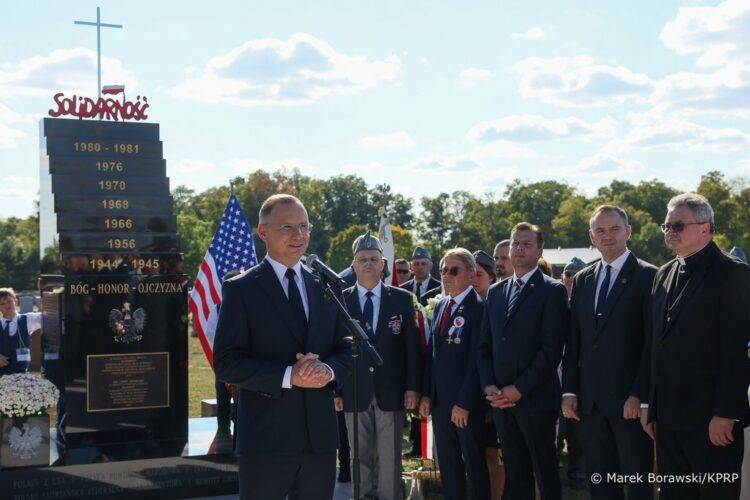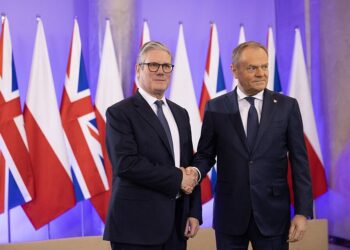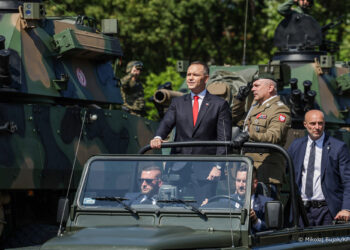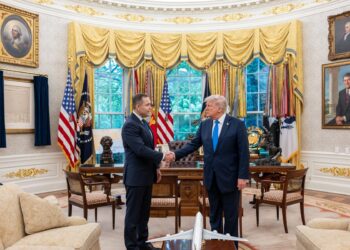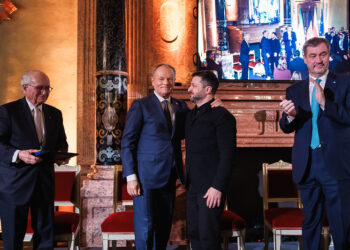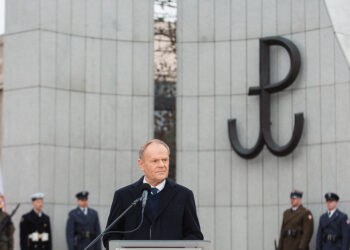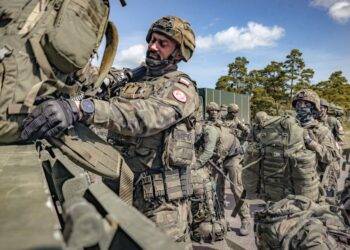Polish President Andrzej Duda, accompanied by First Lady Agata Kornhauser-Duda, called on Polish-Americans to actively participate in U.S. elections during a visit to the National Shrine of Our Lady of Czestochowa in Doylestown, Pennsylvania. Speaking to the Polish diaspora, Duda stressed the importance of a “strong America” for the security of Europe and Poland, urging the community to make their voices heard.
“Do everything to ensure that the Polish community in the U.S. is absolutely unignorable,” Duda said, addressing the audience at the shrine, also known as the “American Czestochowa.” He emphasized that Poland’s strength, bolstered by its military and infrastructure, is vital to Europe’s security and essential for Poland’s role as a key ally of the United States.
Duda’s remarks were made in the context of the growing need for Poland to support U.S. global leadership. He noted that a strong Poland could provide the necessary backing to American forces, ensuring they remain a dominant power on the world stage. This alignment, he explained, is vital for global peace and stability.
Call to Action for Polish-Americans
Duda appealed directly to the Polish-American community, urging them to vote not only in the upcoming U.S. presidential elections but in all elections. He underscored the significance of political pragmatism, stating that Polish-Americans’ participation could influence U.S. policies that impact Poland. “If there are hundreds of thousands or millions of votes, that community counts. If there are none, it becomes negligible,” he explained.
The president also emphasized that despite their distance from Poland, the diaspora holds significant sway over Poland’s future. He described their influence as “carrying the fate of the Republic” in their hands, underlining their crucial role in maintaining Poland’s security and sovereignty.
Political Tensions Surface at Ceremony
The event wasn’t without controversy. Tadeusz Antoniak, president of the Katyn-Smolensk Committee, expressed concerns over what he described as a growing threat to democracy in Poland. Antoniak’s comments, along with those of other speakers, criticized the current Polish government, accusing it of undermining democratic principles.
In a similar tone, Karol Nawrocki, head of the Institute of National Remembrance, warned that communist propaganda was resurfacing in Poland, influencing both politics and educational frameworks. Former Defense Minister Antoni Macierewicz took the opportunity to claim that the Smolensk plane crash of 2010, which killed 96 people, including then-President Lech Kaczyński, remains a tool used by political opponents to shield Russian President Vladimir Putin.
Symbolism and Support for Trump
While Duda’s speech focused on Polish-American contributions and the strength of U.S.-Polish relations, the crowd offered a glimpse into the divided political sentiments among the diaspora. Several attendees wore “Make America Great Again” caps and carried signs supporting former President Donald Trump. Though Trump’s campaign initially indicated he would appear at the event, it was later confirmed that he would not attend.
Duda’s appeal comes at a critical time, as both Poland and the U.S. face important elections. His remarks reflect Poland’s continued reliance on strong transatlantic ties, particularly in defense matters. For Polish-Americans, their political involvement in the U.S. is now seen as integral to securing Poland’s future in an increasingly volatile geopolitical landscape.

